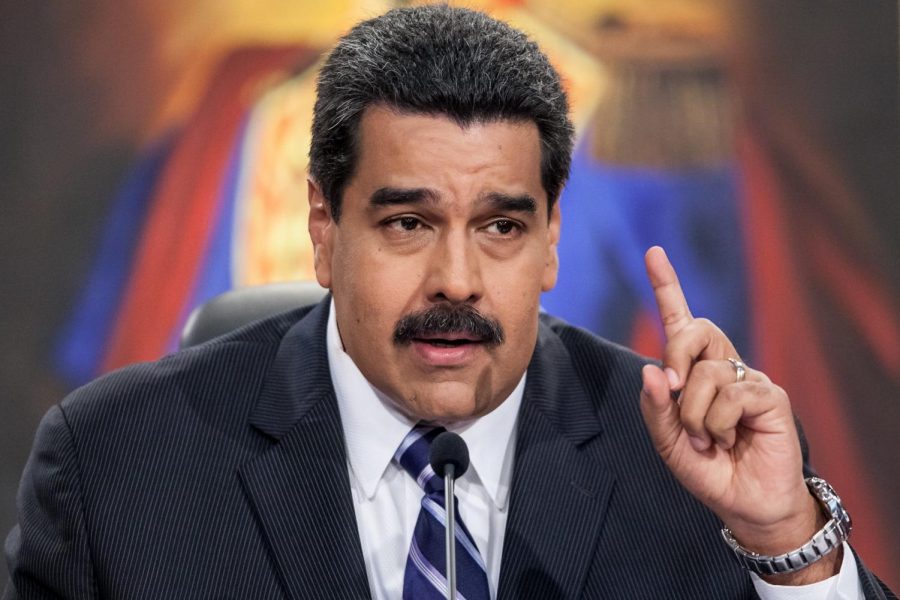Hands off of Venezuela
By Jack McClatchy
The recent crisis in Venezuela ignited another frenzy of jingoism to curry favor for an intervention in deposing Venezuelan President Nicolás Maduro and elevating National Assembly Leader Juan Guaidó to power.
The question here isn’t whether Maduro or Guaidó is the legitimate leader of Venezuela, it’s whether or not the Venezuelan people will be in a better situation when American interests are inevitably drawn elsewhere.
If we look to the history of the United States meddling in the affairs of other nations, especially in Latin America, the chances don’t look good.
Just in the past 50 years, the United States supported authoritarians that overthrew democratically elected governments in Brazil, Chile and Bolivia, as well as intelligence sharing between dictatorships in programs of brutal political repression known as “Operation Condor.”
However, Latin America alone is not the only evidence of a damning record on regime change. Since the turn of the century, we have engaged in regime change in Iraq, Libya and Afghanistan; it has also supported the ouster of the leaders of Syria and Egypt, neither of which are functional democracy right now.
There is also the fact that the U.S. is not driven by any real sense of benevolence or wanting to “spread democracy” to Venezuela.
We need only to look at a Jan. 24 tweet from Sen. Marco Rubio (R-FL): “Biggest buyers of Venezuelan oil are @ValeroEnergy & @Chevron Refining heavy crude from #Venezuela supports great jobs in Gulf Coast. For the sake of these U.S. workers I hope they will begin working with administration of President Guaido & cut off illegitimate Maduro regime.”
It’s unfair to say that just because one Republican senator said that Venezuelan oil reserves — which are the largest in the world with over 300 billion barrels of oil — are a main motivator for U.S. interests in the region.
But that’s not what’s going on. Trump’s National Security Advisor John Bolton — who was seen recently with a notepad suggesting a plan to send five thousand American troops to neighboring Colombia — said that there is interest in Venezuelan oil reserves.
If the end result sought by the Trump administration is having American oil companies take Venezuelan oil, then it doesn’t matter if Guaidó is any more democratically inclined than Maduro as long as his interests coincide with America’s oil interests.
We must also remember that in his presidential campaign, Trump ran on a non-interventionist platform calling for withdrawals from Iraq and Afghanistan.
He has also announced a withdrawal of American troops from Syria, which in principle is the right move to make. To then let John Bolton and Marco Rubio decide foreign policy with military adventurism in Latin America, we will come to regret becoming involved in this crisis.
That doesn’t mean we should bide our time either. In the wake of Guiadó proclaiming himself interim president, Mexico and Uruguay called for an international conference to mediate negotiations between Maduro and Guaidó, which will be held in Montevideo on Feb. 7.
There needs to be a peaceful and diplomatic solution to this crisis and it needs to be led by Venezuela. Any forced regime change with assistance from foreign powers will not be popular among Maduro’s supporters in rural areas of Venezuela, which he noted when he declared that Venezuela could become America’s “second Vietnam.”
It goes without saying that a war of Vietnam’s scale in this political climate would be incredibly toxic for the president and the country as a whole.
What’s eerily concerning is just how much politicians on both sides of the aisle are seeking regime change in Venezuela, as if we haven’t learned how that doesn’t work. The only political official who has spoken out against U.S. policy in Venezuela is Rep. Ilhan Omar (D-MN), who tweeted that sanctions on Venezuela “are nothing more than economic sabotage designed to force regime change by starving the very people we claim to be helping.”
Regime change never works out in the best interests of the people who actually experience it. We can hurl bombs and missiles, and kill a few key officials, and then ride off into the sunset claiming another victory for Western liberal democracy. But what we leave behind, is a nation in ruins that easily falls under the control of authoritarians or collapse into civil war, as we have seen in Iraq, Afghanistan and Libya.
One would think this nation could learn from our mistakes and shift strategy to better help the people who we claim to be helping. When I see Bush and Reagan administration officials leading the charge in policy making with regards to Venezuela, I fear that conditions in Venezuela will get a whole lot worse before there is a possibility of them getting better.
Jack McClatchy, FCRH ’21, is a political science major from Wayne, Pennsylvania.











































































































































































































Rosie Dixon • Feb 12, 2019 at 4:31 pm
Good job Jack. Happy to be related to you. Your great aunt, Rosemary McClatchy Dixon